Court was packed today, thanks to the many groups came out in support of our CCSF.
ACCJC President Barbara Beno continued giving testimony, along with visiting team chair Sandra Serrano and ACCJC Vice President Krista Johns, further revealing the improprieties in ACCJC’s conduct in its evaluation of City College.
Barbara Beno, president of ACCJC
Beno attempted to separate “deficiencies” from noncompliance with standards, in order to dodge the ACCJC’s own policies around giving colleges additional time to respond when the ACCJC issued its disaccreditation letter to City College in July 2013. She claimed that this action letter did not list additional deficiencies, but did list additional standards that were not met, as compared with the Show Cause team report. It was a spurious distinction that the CAO attorney later unraveled.
Beno repeatedly said that deficiencies are college behaviors leading to non-compliance. And yet, when asked later by the CAO attorney as to whether colleges that meet standards even though they exhibited behaviors indicating “deficiencies” should be sanctioned, Beno did not have an answer. Attorney Ronald Flynn said that nowhere in the ACCJC’s policy on good practices and relations does it define “deficiency” as referring to a college’s behaviors.
ACCJC attorneys spent a lot of time questioning witnesses around the process of selecting visiting teams, in particular the chairs, and the communication that occurs during the evaluation process on the ground and the drafting of reports. Beno said that she reviewed the visiting team’s reports for “substantive coherence and accuracy.” In drafts of the Show Cause evaluation team’s report, Beno, as the staff reader, questioned the team’s assessment around the college’s meeting of various standards. Attorney Flynn showed the activist hand of Barbara Beno with two examples, where the visiting team concluded that the college had met Standards IIB4 and IVA1, while the commission moved to terminate citing those standards, among others, as not being met. In fact, the ACCJC decided in eleven instances that standards had not been met, despite the visiting team’s first-hand assessment that City College had complied with those very standards.
Beno again made the claim that the ACCJC’s support of the Student Success Task Force was incidental to the imposition of Show Cause on City College months later. She said without any hint of irony that the ACCJC did not get notified in advance when the DOE put the commission on its own Show Cause in fall 2013.
ACCJC’s renegade actions have also gotten attention from state legislators. At midday, Assemblyman Phil Ting held a press conference announcing forthcoming legislation to keep the ACCJC’s runaway legal bills from draining state education funds. “The ACCJC seems focused on the courtroom, not the classroom,” he said. In December, Ting will take this up through legislative changes or the state budget process.
Sandra Serrano, Chancellor of Kern Community College District, 2012 & 2013 visiting team chair
ACCJC’s attorney conducted a laborious examination around the process of mobilizing the visiting team and the chair’s role in assigning leads on each standard. Duringthe questioning, Serrano did confirm that the 2012 team recommended either probation or warning for City College. Show Cause status had not been discussed. She said she did not question the “appropriateness” of Beno’s comments as staff reader of the draft report. Serrano testified that the college, specifically Interim Chancellor Thelma Scott-Skillman and Special Trustee Robert Agrella, had been presented with the report to identify “errors of fact.”
When cross-examined by the People’s attorney around the process of editing the 2013 Show Cause visiting team’s report, Serrano’s story began to unravel.
Earlier, she claimed that as chair, she was not bound to follow suggestions made by the ACCJC representative, ie. Barbara Beno. Stating a reliance on the team’s report, Serrano said she wasn’t inclined to make substantive changes in light of their ongoing discussions. And yet, on the morning of May 8, 2013, Barbara Beno sent Serrano an email with an edited document and request: “Please try to make respective changes.” Serrano proceeded to change three of the standards to ‘not met’ – a fact that she couldn’t fully recall on the witness stand. Hours later that day, she sent the revised report to the commission.
After ACCJC issued the termination letter last July, Serrano sent a letter to the commission encouraging it to give City College more time. ACCJC’s attorney Andrew Sclar then asked “why?” – a question for their witness that gave more credence to the People’s case. Serrano responded that during the visits, she felt that City College had been on track, and with time it would make progress to come into compliance with each of the standards. Of course the ACCJC didn’t see it that way, having given City College no recourse until it created a Restoration policy with unattainably high standards.
Krista Johns, ACCJC Vice President for Policy and Research
The late afternoon witness for the ACCJC was Krista Johns, the agency’s Vice President for Policy and Research. Johns, who reports to Barbara Beno, told the court she is responsible for developing policy regarding continuing recognition of the ACCJC as accreditor by the US Department of Education (DOE). In that capacity she responded for the ACCJC to the August 13, 2013 letter from the DOE to Barbara Beno that told the ACCJC it was out of compliance with a number of accreditation standards.
The letter followed a DOE investigation of AFT 2121 and California Federation of Teachers’ formal complaint regarding unfair and unlawful acts of the ACCJC, resulting in its “Show Cause” sanction of City College of San Francisco. The ACCJC attorney asked Johns numerous questions about the recognition process and how ACCJC dealt with the complaint. She claimed that the question of whether the number of academics on the site visit teams was adequate or not had been settled satisfactorily with the DOE.
Johns also answered questions about whether the ACCJC had offered any due process remedies to the college after Show Cause was imposed and then again after the termination order. Johns described the various appeals processes, without noting the absurdity of each level of appeal taking place with yet another subcommittee of hand-picked members of the ACCJC. She concluded with a declaration that the new “restoration status” policy, which she wrote, was now underway, thus offering yet another due process remedy for the college.
Throughout the day, groups of faculty, students, and community supporters filed into the courtroom. The Chinese Progressive Association was notable in their numbers and t-shirts. Former CFT president Marty Hittelman flew up from Los Angeles to attend, and Supervisor David Campos watched the proceedings as well. The continuously full room reflected the support of San Francisco for its community college.

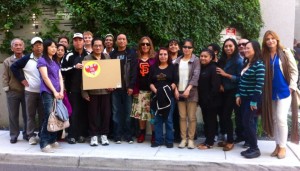

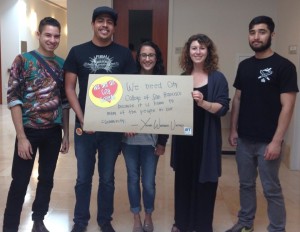
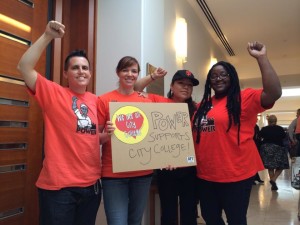
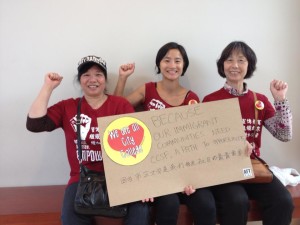


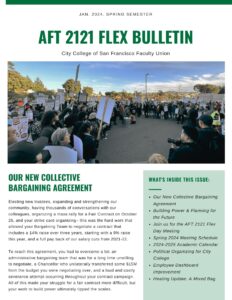
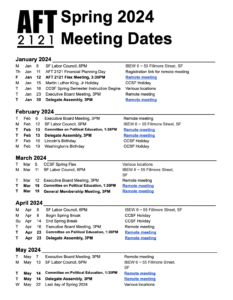
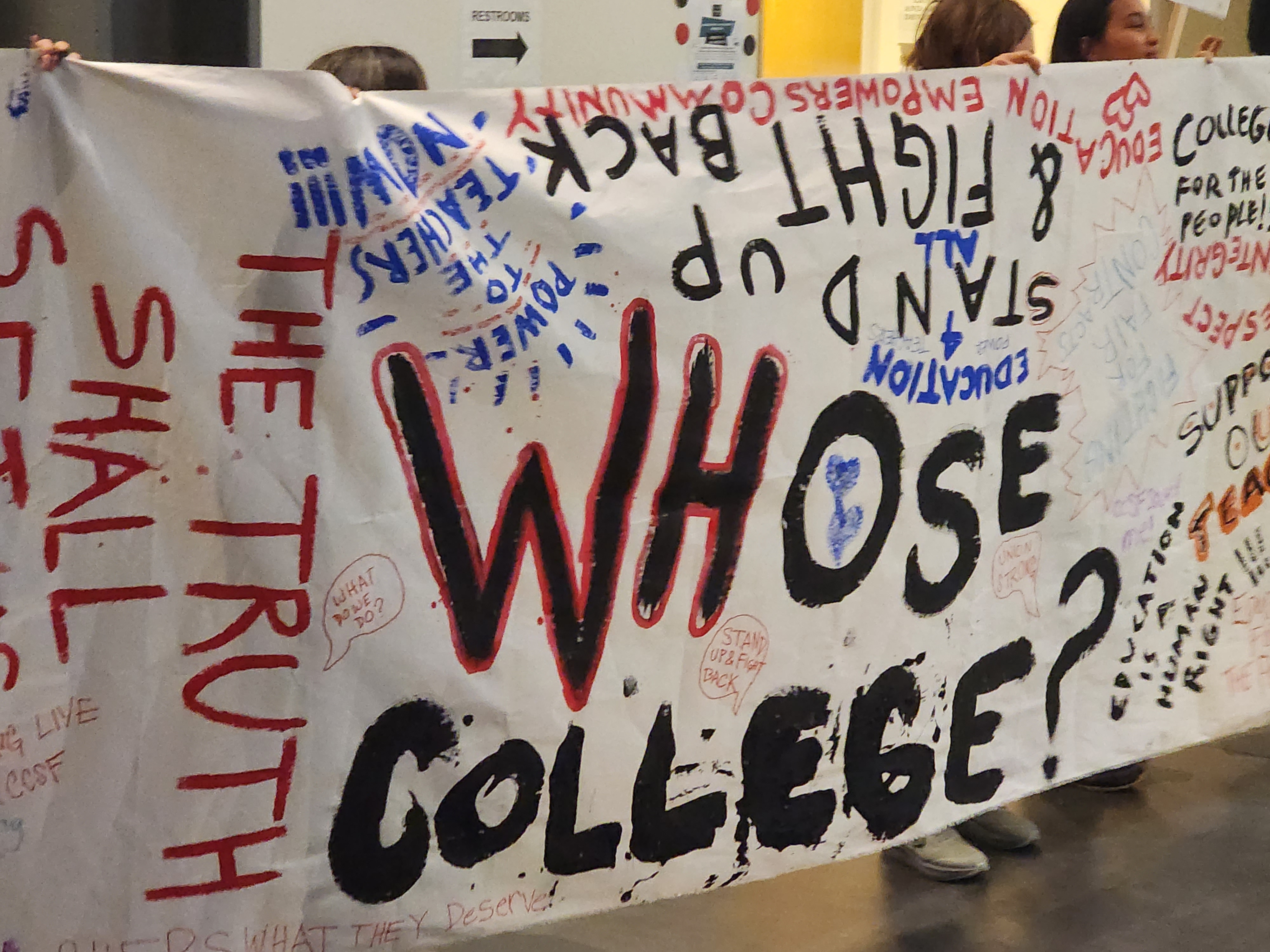
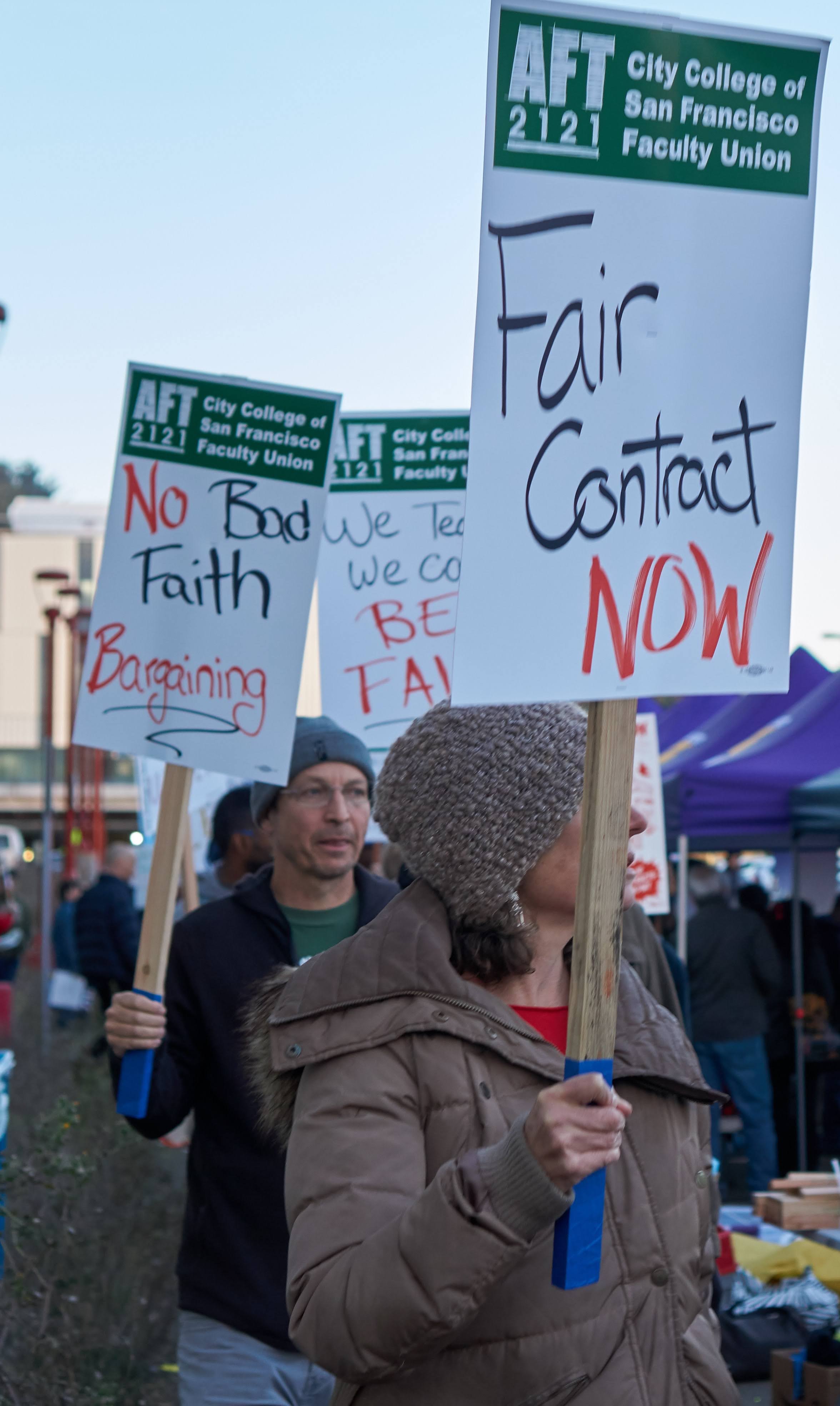
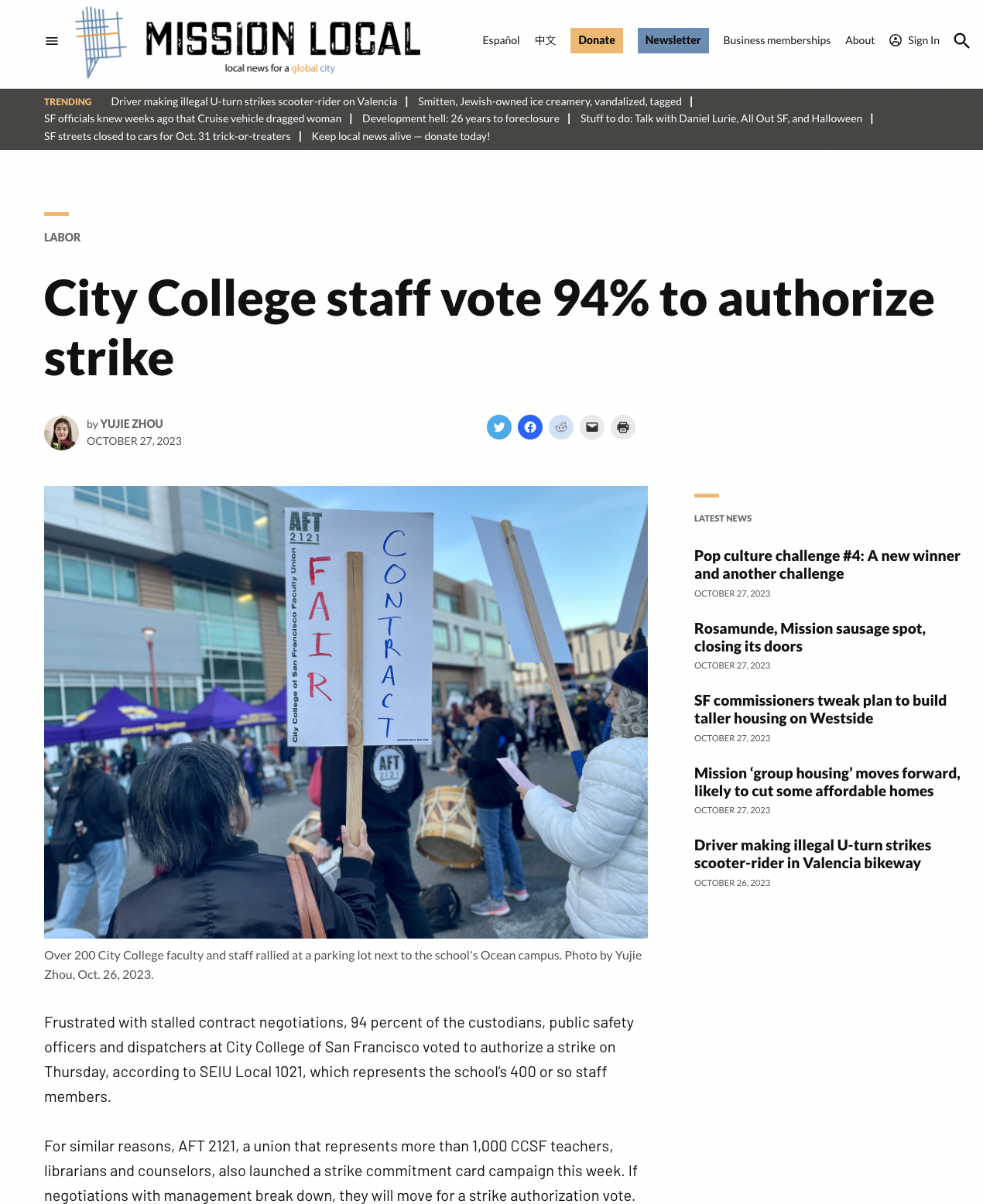
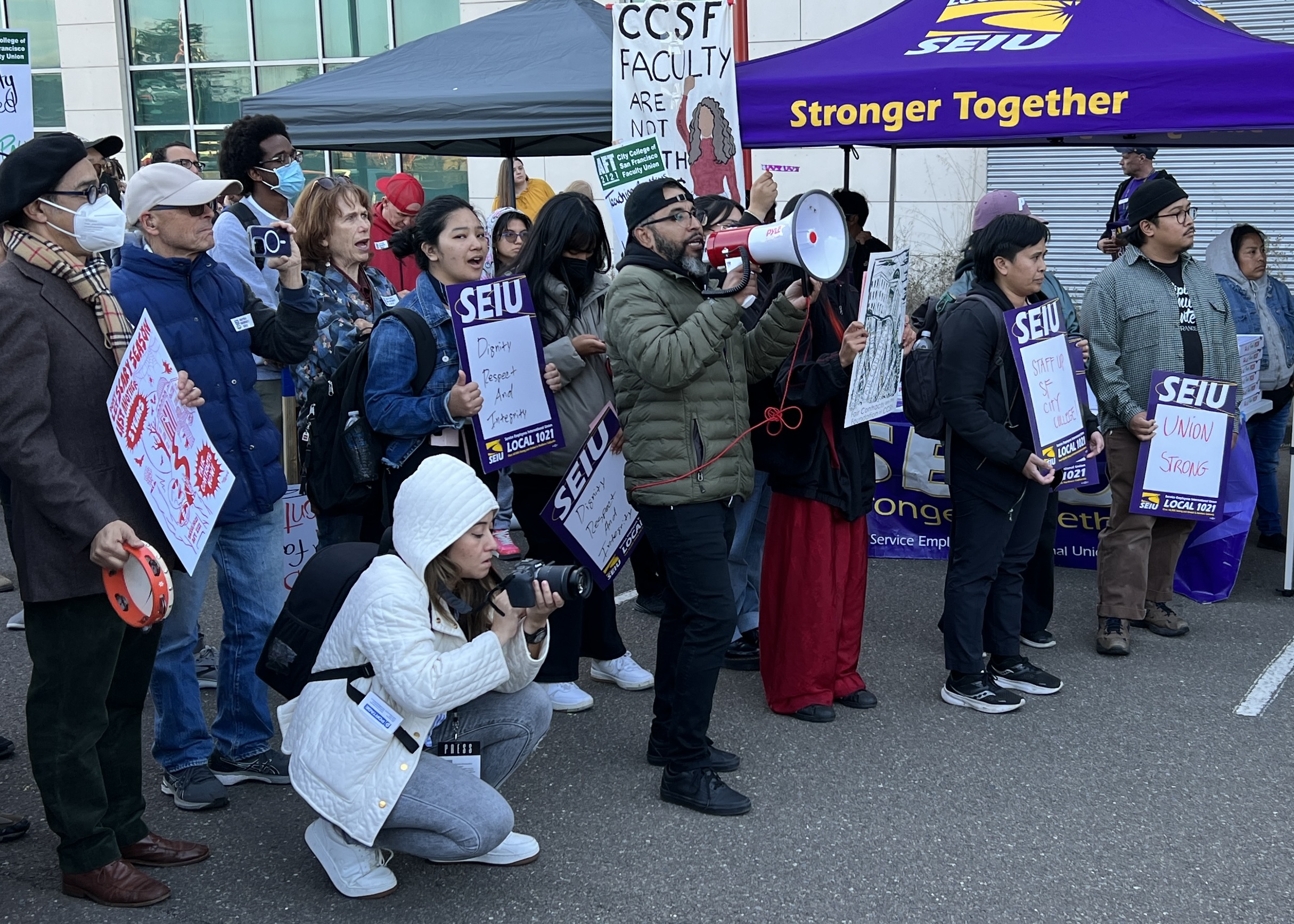
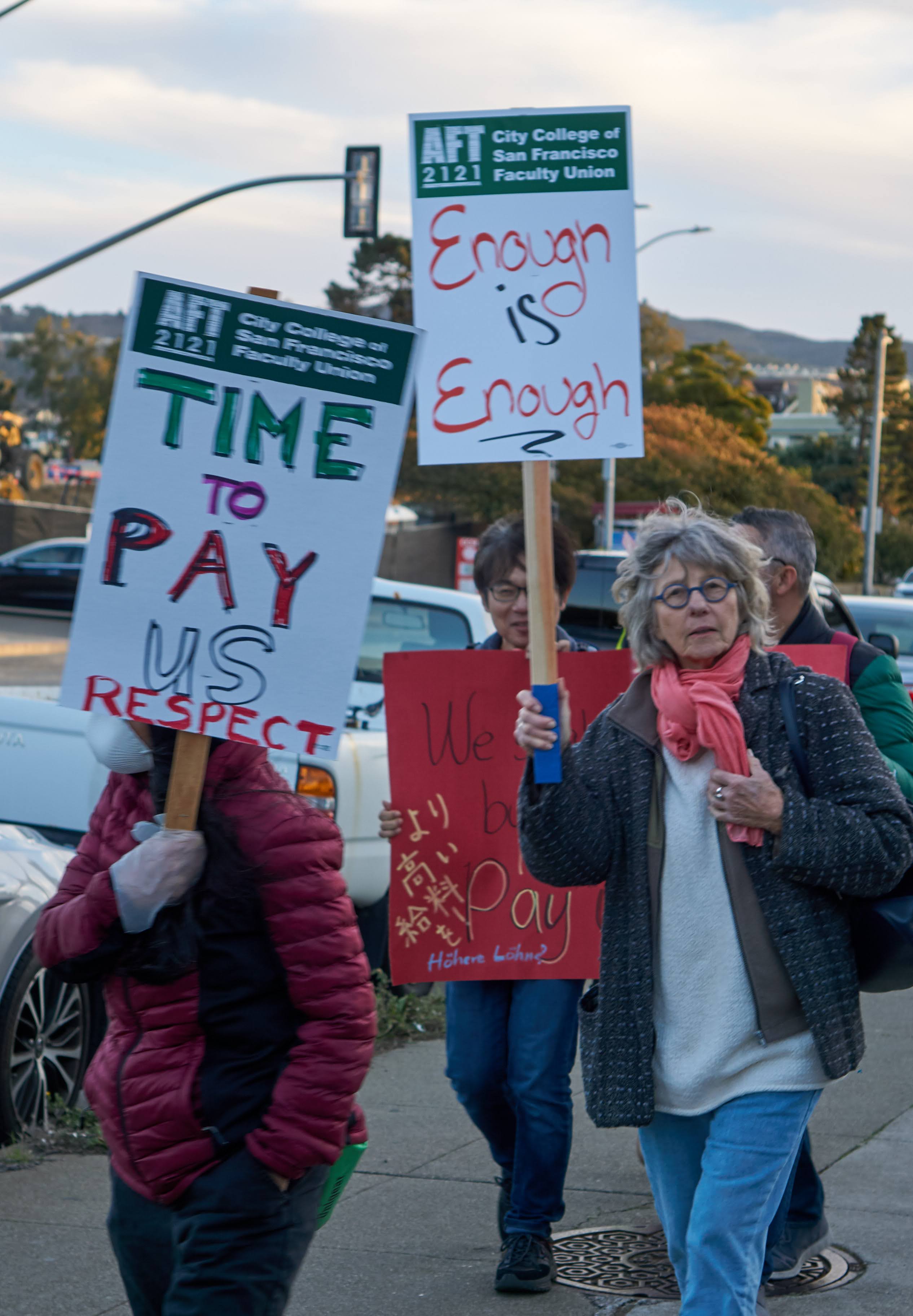
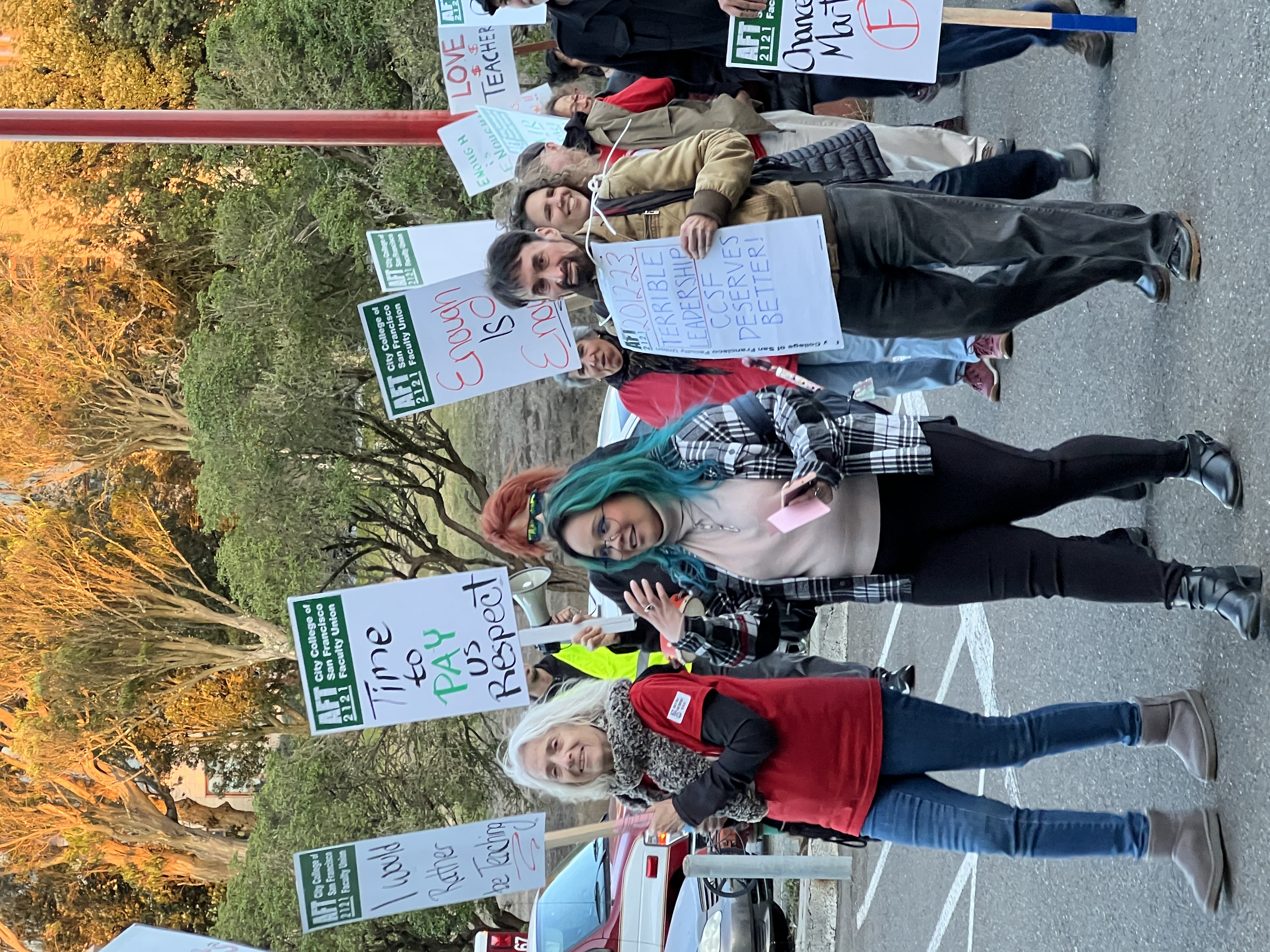
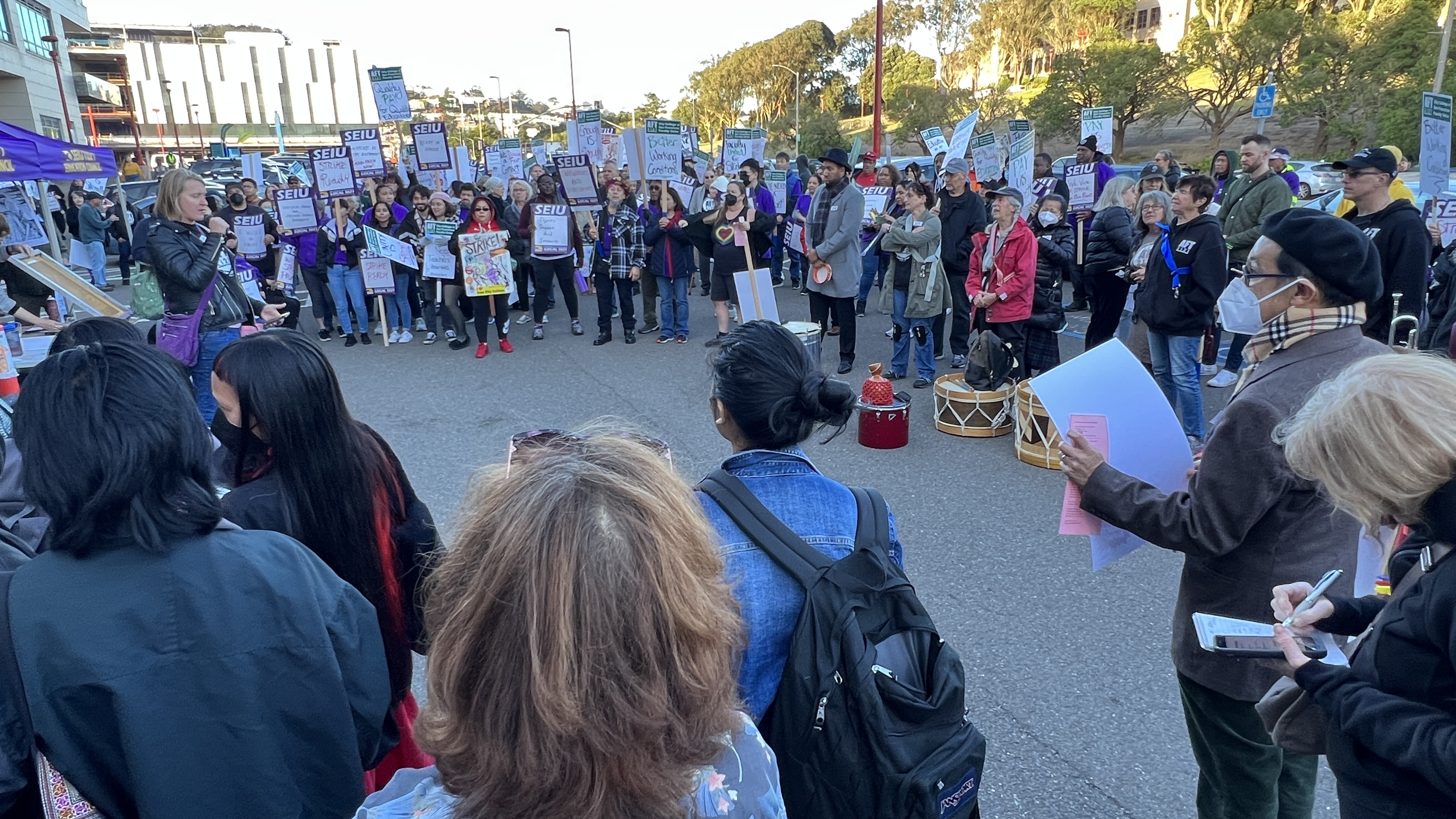
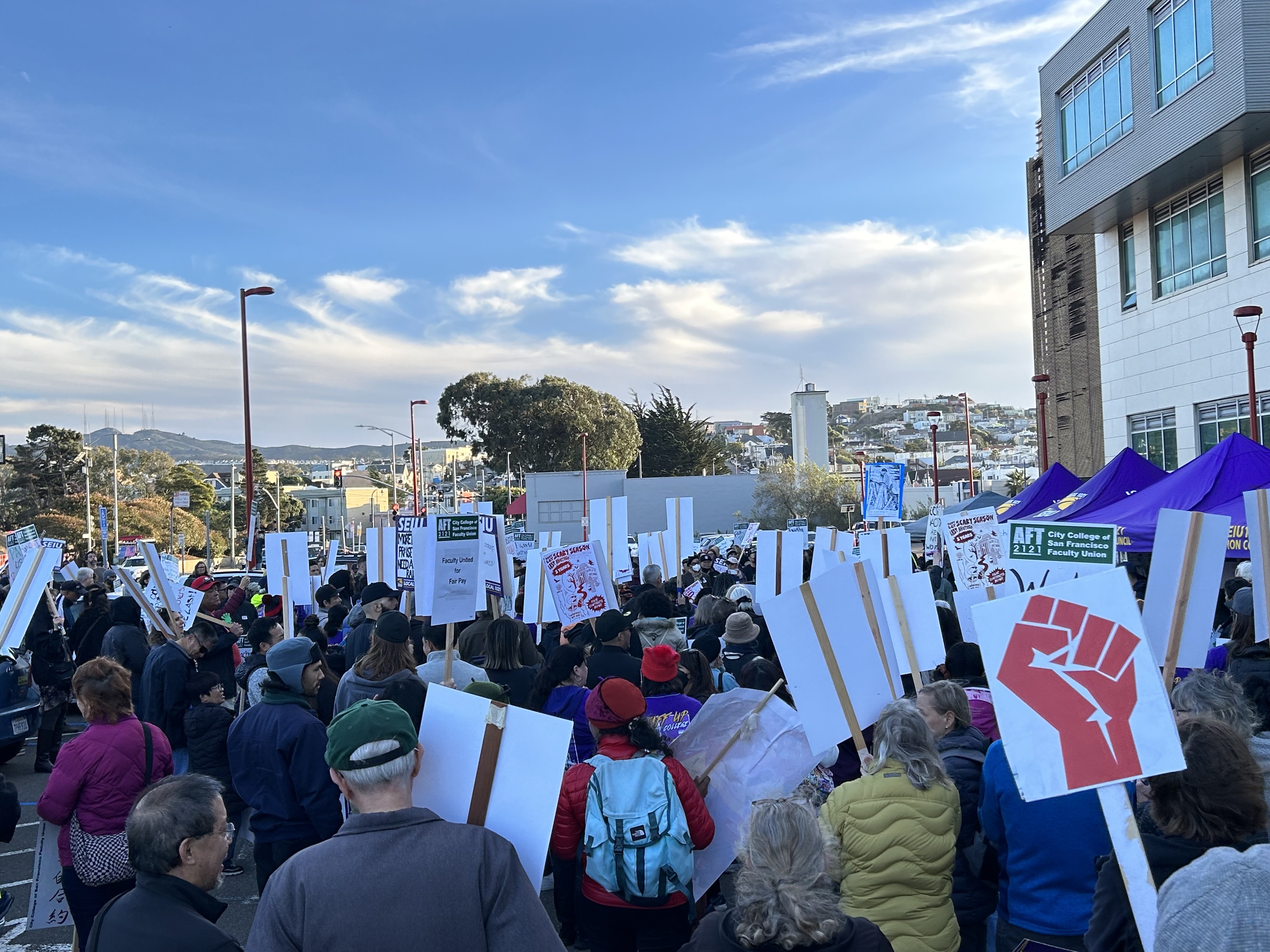
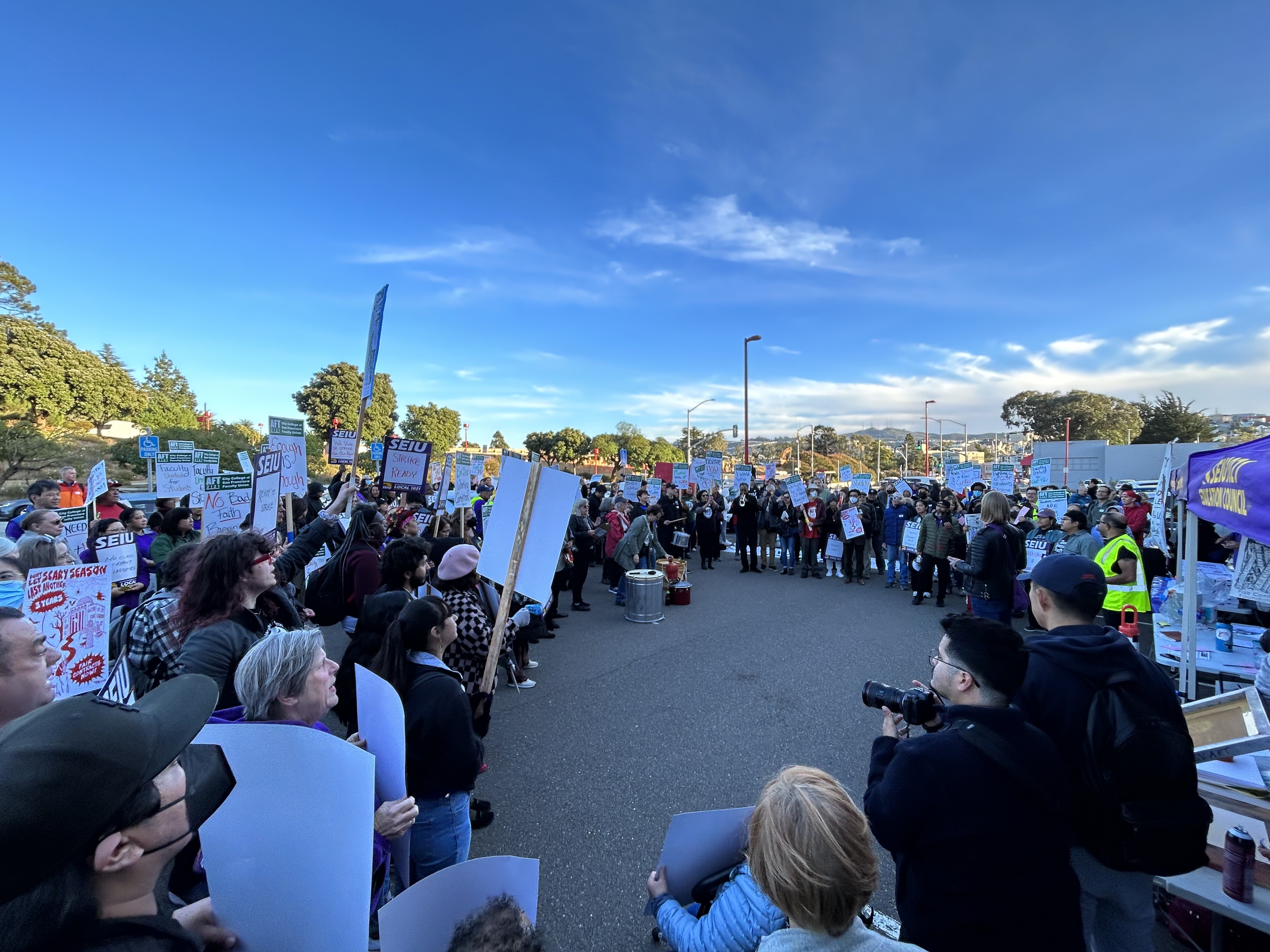
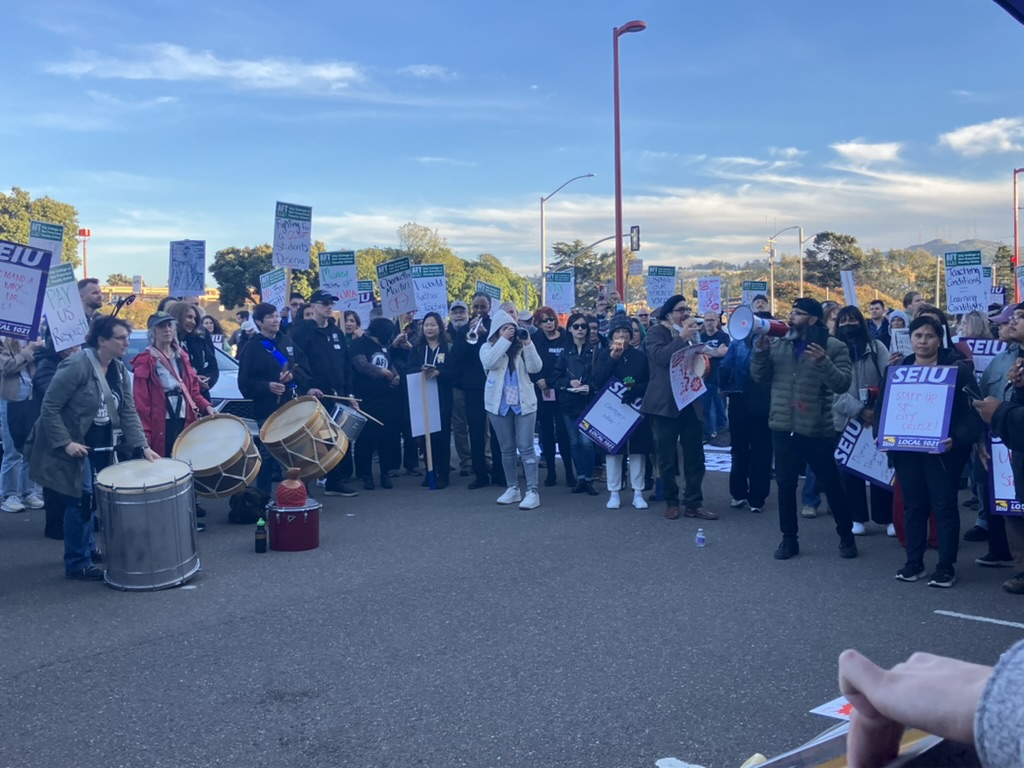
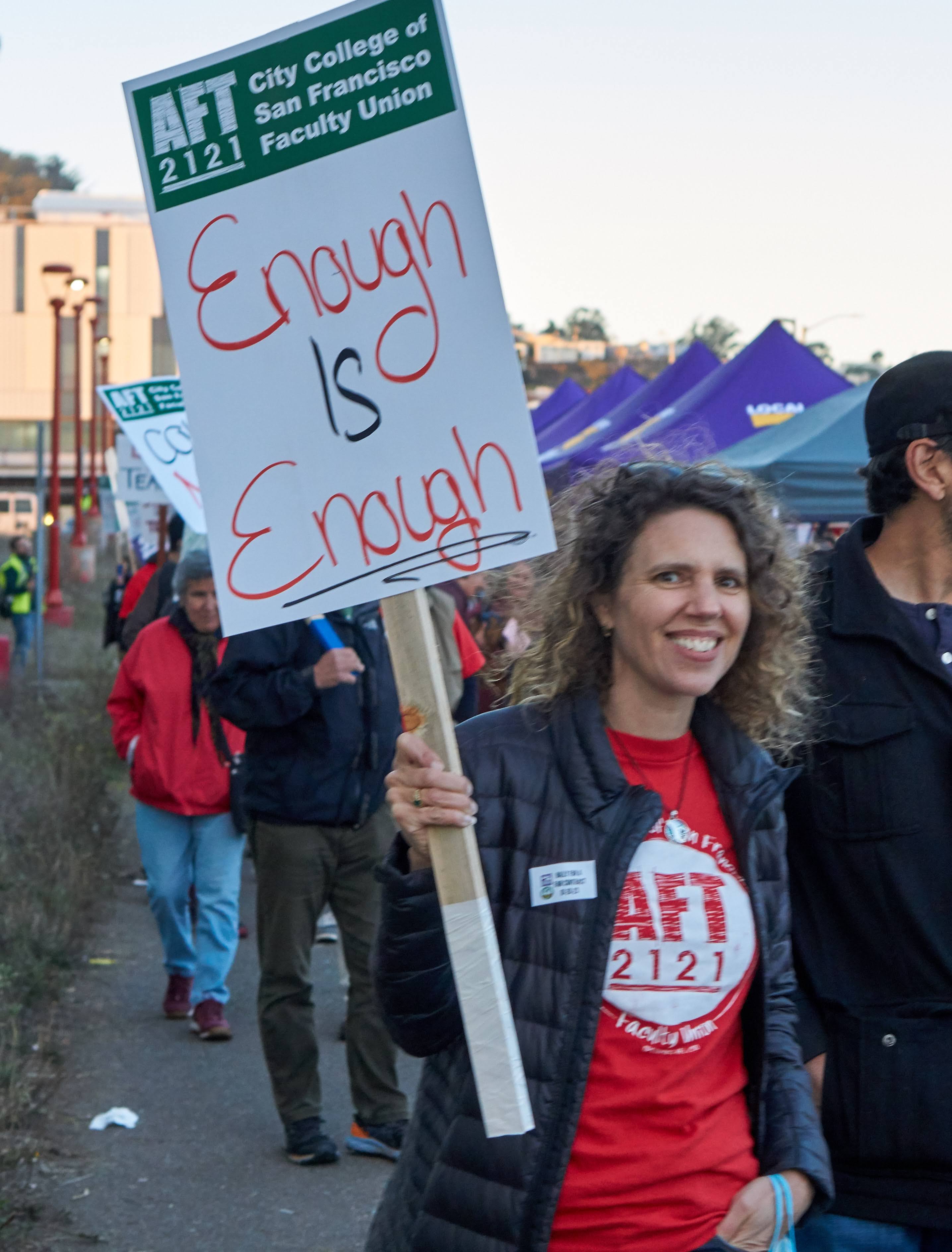

Follow Us!